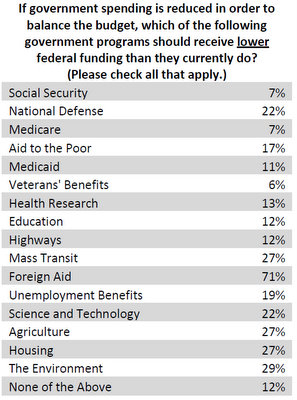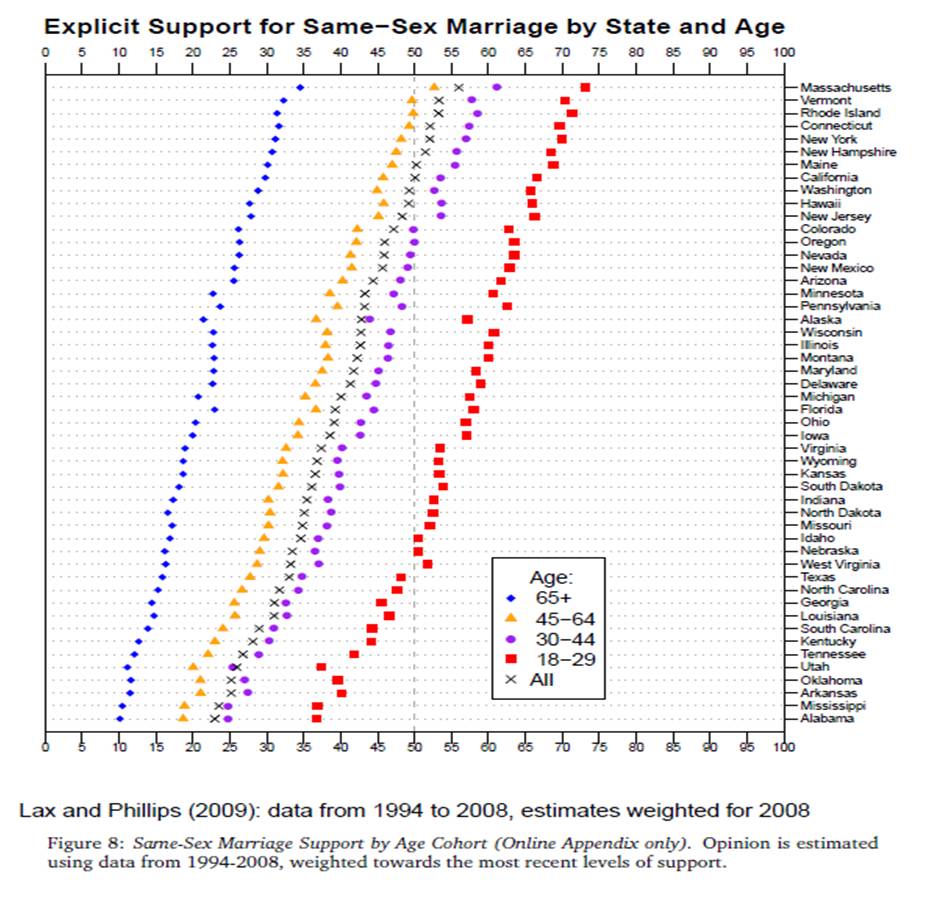Sixty-two percent of Americans think that the country should reduce spending in order to cut the deficit. What do they think we should cut? Nothing really.
Well, nothing except foreign aid.
Kevin Drum at Mother Jones reminds us that foreign aid is about one percent of the U.S. budget.
…there were only four [other] areas that even a quarter of the population was willing to cut: mass transit, agriculture, housing, and the environment. At a rough guess, these areas account for about 3% of the federal budget. You could slash their budgets by a third and still barely make a dent in federal spending.
The Economist, via BoingBoing.
Lisa Wade, PhD is an Associate Professor at Tulane University. She is the author of American Hookup, a book about college sexual culture; a textbook about gender; and a forthcoming introductory text: Terrible Magnificent Sociology. You can follow her on Twitter and Instagram.










